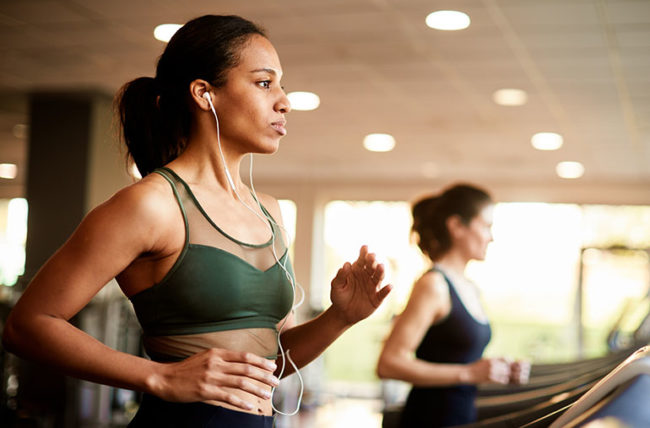
You should prepare well for the Personal Trainee exam. Use a Personal Trainer study guide to improve your score. These guides are available in both print and eBook versions. They also include practice questions that will help prepare you for the test. These flashcards will help you to remember important information.
ACE's Resources for the Personal Trainee
The ACE's Resources for the Personal Trainer book is one of the most highly-sold texts in the personal trainer industry. It explains the primary responsibilities of a personal trainer, including how to assess a client's physical fitness level. It also addresses the importance of client's overall health.

ACE's Resources for the Personal Trainer include online courses, diagnostic samples tests, and an eBook platform compatible with almost all devices. You can make notes and highlight specific content with interactive quizzes, bookmarking and bookmarking. It also offers hyperlinks that allow students to find more information.
ACE's Advanced Concepts of Personal Fitness
For students who want to take the ACE Advanced Concepts of Personal Training exam, a study guide can be a valuable aid. This study guide provides hundreds of practice tests that simulate the actual exam. The questions, along with the format of test, may prove useful to test takers who have taken the test before. You can take notes, pause and restart the test at any time.
Information on professionalism, safety, risk management, and professionalism are also included in the study guide. These are all key topics for this test. The study guide has 750 questions that are explained in detail. It is co-authored by ACE Certified Personal Trainers Susan Hill and Christy Hamilton.
ACE's Mometrix NASM-CPT study guide
The Mometrix NASM/CPT study manual is a useful resource for those who are interested in taking the NASM/CPT exam. This study guide has been created by experts to help you understand the content and answer questions. The Mometrix study manual contains all of the information necessary to pass the exam.

You will find more than 400 practice ACE CPT questions in this study guide. Each chapter has a quiz format. This allows you to quickly test your knowledge without spending time on irrelevant material.
FAQ
How many hours of sleep should you get each night?
The recommended sleep amount varies based on age, gender, individual needs, and other factors. Most adults require between 7 and 9 hours of sleep each night. Children and teens typically need between 7 and 9 hours of sleep each night. However, this number drops as they get older.
Why is it important that you get enough sleep?
Sleep is essential for maintaining a healthy lifestyle. Sleep is essential for your body to recover from daily stressors and repair itself. Get enough sleep every night to be able to function well throughout the day.
When I exercise, should I consume alcohol?
It is important to limit your alcohol intake while you are working out. It is possible to increase your endurance by drinking moderate amounts of alcohol (one glass per day). It may also reduce fatigue and muscle aches caused by intense exercise.
What is the importance of good nutrition?
Our health and well-being depends on our nutrition. A healthy diet should include fruits, vegetables and whole grains as well as lean proteins, dairy products, and legumes. Being active and eating healthy foods can help us be more fit, which results in better overall health.
Is it possible to be too thin?
Yes! Both being underweight and having an eating disorder can be dangerous. It is not normal for someone to weigh less than their ideal height. A person may feel tired, weak, dizzy or experience other symptoms that might indicate they are underweight.
What are Cardio Exercises and How Do They Work?
Cardiovascular exercises are ones that make your heart and lungs work harder. You can do this by running, swimming, biking, rowing and bicycling. These activities burn fat and raise your metabolism. These activities are great for staying fit because they strengthen your heart and lungs.
Statistics
- In 2018, the World Health Assembly agreed on a global target to reduce physical inactivity by 15% by 2030 and align with the Sustainable Development Goals. (who.int)
- Adolescent girls were less active than adolescent boys, with 85% vs. 78% not meeting WHO recommendations of at least 60 minutes of moderate to vigorous intensity physical activity per day. (who.int)
- Globally, 81% of adolescents aged 11-17 years were insufficiently physically active in 2016. (who.int)
- Physical activity confers the following maternal and fetal health benefits: a decreased risk of pre-eclampsia, gestational hypertension, gestational diabetes (for example, 30% reduction in risk) (who.int)
External Links
How To
How to Stay Fit at Age 40
This article will help those over 40 who want to maintain a healthy body. This article provides basic information on how to eat well, exercise, sleep well, and take care your mental health. This article provides tips to help you live longer and be healthier.
-
Eat right - It is important to eat the right food when you are trying to lose weight. You should try to avoid processed food products and opt for whole grains, fruits, vegetables, lean meats, fish, nuts, seeds, and beans. If you don't like what you're eating, just add something else to your diet. Don't starve yourself; this won't help you lose weight. Instead, start adding small amounts of new things into your daily meals. For example, if you normally only eat chicken breast, try turkey once weekly. Rice is another option if you enjoy pasta. You can make these foods a regular part of your daily diet.
-
Exercise - Make sure to exercise at least three times per week. You should include cardio activities such running, swimming or biking. Make sure to get enough rest. It is recommended to get 8 hours of sleep each night. In addition, make sure you drink plenty of water during the day. You should aim to consume 2 liters (0.5 Gallons) of water per day.
-
Sleep Well - Getting adequate sleep is essential to staying fit. According to the National Sleep Foundation, adults require 7-8 hours of sleep daily to maintain optimal physical and emotional health. The majority of people sleep less than 6 hrs a night. If you find that you are constantly tired throughout the day, try making adjustments to your sleeping habits. It is possible to catch up by making adjustments to your sleep schedule, such as waking up earlier or going to bed later. You can also turn off your smartphone before you go to sleep so you can relax and wind down. Avoid caffeine after noon, as it can cause sleeplessness.
-
Take care of your mental health - It is essential to take good care of your mind in order to keep your body healthy. Stress can lead people to have poor eating habits or make poor lifestyle choices. Meditation, yoga, breathing exercises and relaxation techniques are all good stress management tools. Try to spend one hour of your free time doing something enjoyable. This could be taking a stroll outside, reading a book or listening to music.
These four tips will help you live longer, and be healthier. These are simple steps that will help you reach your fitness goals.